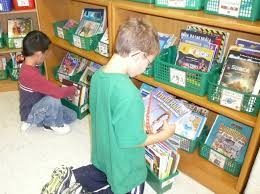Teachers, parents at the heart of the solution to SA children’s reading problem – expert


Pretoria – Teachers and parents are at the heart of the solution to South Africa’s reading problem, an expert says.
This is the view of Professor Sarah Howie, National Research Coordinator (NRC) for the Progress in International Reading Literacy Study (Pirls) 2016 South Africa.
Howie was reflecting on the findings of the 10-year study, conducted by researchers from the University of Pretoria, that “paints a concerning picture of primary school-level reading literacy in South Africa”.
Researchers from the University of Pretoria’s (UP) Centre for Evaluation and Assessment (CEA) completed the South African portion of the global study on reading and literacy levels among Grade 4 and 5 students.
At the end of 2015, the CEA tested the reading ability and literacy skills of 12 810 Grade 4 learners across South Africa, in all 11 languages. In addition, more than 5 000 Grade 5 learners were tested in Afrikaans, English and isiZulu.
This data was processed and analysed by Pirls and returned to the CEA for further analysis.
The study, released on Tuesday, found that almost 80% of South African Grade 4 pupils fall below the lowest internationally-recognised level of reading literacy in their language of learning.
Parents play an important role
The study also revealed that, out of the 50 countries that participated, South Africa was ranked last.
Howie told News24 that more needed to be done to support the development of teacher skills and teaching practices during their initial training as well as once they were in the classroom.
“This is where the focus, in my view, needs to be in making sure that the teachers who are teaching are appropriately trained and supported to teach Grade 1 especially, but also Grade 2 and 3. These are the formative grades,” she said.
More could also be done to ensure that teachers and schools had the essential resources that they needed to teach reading.
“This includes increasing the percentage of schools, in the poorest areas, that have a school library and that their classrooms have classroom libraries as it is highly likely that the children’s homes will be under-resourced.”
The education expert said that parents also had an important role to play.
“Parents need to spend time on early literacy activities with their children before they go to school and read to or with them when they’re [back from] school.”
Howie added that it was important for parents to ensure that their children were present at school, adding that South Africa’s absenteeism rates appeared high compared to their peers internationally.
Boys perform worse than girls
“Furthermore, parents need to engage with their children’s teachers and be involved the school community,” she said.
Government also needed to target its (current and future) interventions to those highlighted in the report, she added.
According to the study, pupils from the Western Cape, Free State and Gauteng performed best in the assessments.
Boys performed worse than girls, with 84% of boys not reaching the lowest benchmark, compared to 72% of girls.
“It is clear that boys in remote rural areas and from deprived backgrounds in schools with safety, discipline problems and fewer resources require an extraordinary effort.
“Efforts to implement Grade R in public schools should be accelerated in the poorest areas, with trained teachers able to implement an effective programme to improve school readiness for Grade 1,” she said.
She said an investigation was needed to understand what additional support was needed for schools where there were previously high performance rates that have now dropped.
“What comes out very clearly is that change takes time – our study shows modest improvements in some areas over five years but the most obvious changes took 10 years to manifest.”
Being able to read is the key to academic and future success, said Celeste Combrinck, acting director at UP’s CEA.
“If you can’t read, your opportunities in school or after that will be limited, so (the) reading ability should be developed from a very young age,” she said in a statement.
The department of basic education welcomed the findings of the report.
“This report provides us with the opportunity to look deeper and try to pinpoint what some of the pertinent issues are that, as South Africa we struggle with,” it said in a statement.
Source:
